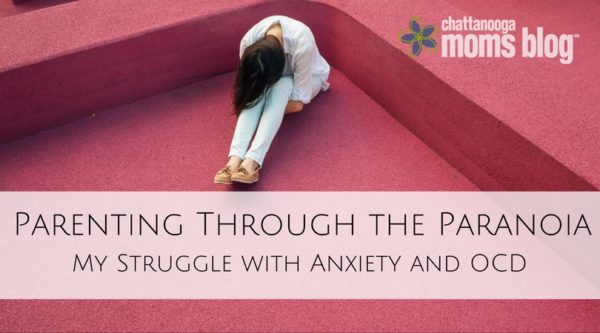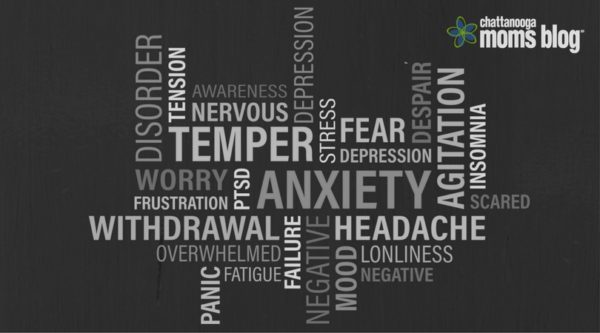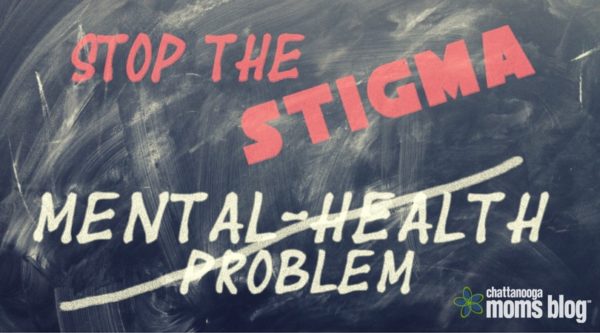
If you’ve known me longer than five minutes, you probably know that I suffer from anxiety and OCD. I don’t tell you this so quickly because I want you to be uncomfortable. The truth is, I’m likely going to make you uncomfortable, so I want you to know why that’s going to happen right off the bat. I haven’t always been so forthcoming about such an intimate, personal detail, but after living with something for well over a decade, even debilitating medical conditions can seem normalized and routine.
To know me is to know that my anxiety and my OCD tendencies are part of how I walk through life as much as any other character trait that I might possess.
One of the biggest problems I find with suffering from something like anxiety is that it can be largely hidden from view. I could be sitting perfectly still with a smile on my face, but inside my mind is running a marathon whose finish line keeps getting pushed just a little further away with every labored step. From the moment I wake up until the moment I fall asleep, I am fearful. I can appear on the outside to be a sane, thinking person who, by and large, has her life together. But there also exists this irrational side of me who uses completely illogical, repetitive coping mechanisms that are completely arbitrary, and most of the time nonsensical. So this duality, this chasm between intelligence and ineptitude, that’s where I reside most of the time.
Enter Motherhood.
I knew that I was nervous to become a mother in the way that most women might be. Embarking on something completely new and unrehearsed is daunting. What I didn’t realize was that all the irrational fears and paranoid thoughts that I experienced on a daily basis were going to go into overdrive when I had my son. I could write chapters on the fear-gripped nights I spent googling everything from listeria to the nursery furniture paint off-gassing VOCs for years to come. You see, all of my triggers that unleash the torrent of panic in my brain all share one commonality. Their theme, if you will, is safety. What is motherhood’s chief end? To love your child relentlessly, obviously, but in the practical sense, it’s to keep your child safe. It’s basically the first task in the job description. Which, if you already suffer from chronic anxiety, is kinda problematic.
Motherhood made my brain unable to quiet the intrusive thoughts that told me danger lurked everywhere, from the most outrageous places, to the most banal. You know the character Fear from Inside/Out? Imagine if he got his own two-hour movie. That sounds like an exhausting thing to watch, right? Well, If you don’t suffer from anxiety, and fear isn’t the emotion that drives your every thought and action, trust me, it’s an exhausting life to live.

I’ll admit, the impetus to do something about my anxiety had really flagged until I suddenly realized that my son was watching everything I do, taking in all of those OCD behaviors that are just second nature to me at this point. I began to fear (shocker) the impact that having a germophobic, life-phobic mother would have on him.
So I came up with a few ways, through much trial and error, that allow me to better function on a daily basis. Now listen, I’m going to give you a quick disclaimer here. I am in no way a mental health professional, nor do I have any capacity to help anyone else, other than the fact that I am a fellow traveler. My opinion is just that — my opinion. These are strategies that I’ve come up with that help me navigate a world that terrifies me. I want to extract all the joy I can out of this life, and anxiety is incredibly time consuming, so I’m trying to minimize its impact on my happiness as mother, wife, daughter, and friend. So here are just a few coping mechanisms that seem to be working for me right now, that’s all.
*I ask myself: What is the worst thing that would happen if I didn’t do XYZ again? (i.e. check the stove for the 6th time, check the lint trap on the dryer for the 4th time, do every task in a series of 4 sets of 8, etc.)
The answer: Likely nothing. Acknowledging out loud that you’ve already done the thing once means you’re placing trust in yourself. It’s saying, once is enough, so let’s move on. It’s hard work, friends. This one takes a lot of practice.
*I have my husband tell me to “sleep on it.”
I know full well that I don’t like hearing this advice in the moment and that this may not work for you, but fear is always less acute the further I am away from the thing that terrifies me. And at this point, it’s really the only thing that he can say that is helpful. We’ve tried talking through irrational thoughts, but it just frustrates both of us and is counterproductive.
*I think to myself: What are the odds?
This may sound similar to the first tactic, but you’ll see, it’s a little different. I’ve never won the lottery. Why? Because the odds just aren’t in my favor. So what is the likelihood that I’m going to be that equally unlucky person who, I don’t know, accidentally touches anthrax, or gets carbon monoxide poisoning. (For the record, I travel with a CO detector. If I am ever your house guest, please know it’s not you. It really is me.) While I know that there is nothing selfish about suffering from anxiety, it helps me to have a perspective that sees it as slightly egocentric.
*I medicate.
If your level of worry is so bad that you can’t live your life the way you want and deserve to, talk to your doctor about your options. It might not be for you, but don’t let shame or disappointment in yourself hold you back from working with a professional to find a solution that best suits you. I talk openly about this decision because, remember, I’m not afraid to make conversations uncomfortable, but I also know that my husband, my child, my family and my friends thank me for this decision, whether they know it or not.
*Finally I talk to other moms about my anxiety, particularly of the postpartum variety.
If I discover another mom who shares my fears, my tendencies, my bizarre habits, we tend to develop a new kind of friendship that quickly transcends polite conversation and becomes more like therapy for the both of us. Strength truly can be found in numbers, even if that number is a mere two. For those moms I meet that have sympathy for my plight, but for whom it miraculously has no personal resonance? Well, these women are my heroes. They don’t realize how much I need their examples of parenting. I use them almost like exposure therapy. They help me see that I can hover a little less, put the hand wipes away a little more, and give the fear a break, if only for a little while.




















Thanks for the post! I’m also a mom with OCD and I totally get it. If you ever want to talk, shoot me an email. (I live in Milwaukee–I write for MKE moms blog, which is how I came across this post–but I’m always eager to talk to moms going through the same thing.)
I could have written this about myself except 2 things. 1. I didn’t develop ANY symptoms until I was about halfway through my pregnancy. I didn’t see the signs, but my husband did. He didn’t think much of it at the time because it was tiny things here and there, but it developed and got much worse. I’m now 12 years into OCD “germaphobia” and anxiety. 2, I don’t have any OCD related to numbers and checks. Mine is pretty much just germs and contamination and safety. I did used to have my radio at volume 13, but I got over that with therapy. I did therapy for a while every week. It helped a lot and you mention some of the techniques. I had worksheets and “homework” to expose myself to triggers and keep track of my reactions and thoughts. I had to write liklihood of something bad happening and worse case scenario. It’s been years since I’ve gone and I really need to go back. I have 3 children and I try not to let it interfere. Sometimes my 12 year old will ask why I am doing XYZ and I tell him I have OCD and relate it to how he has ADHD and can’t help some of the things he does. Anyway, I used to not talk about my OCD and anxiety, but now I am pretty open about it. The stigma is why I used to not talk about it. We have to change the stigma.
It was so brave of you to write this article. So many people are judgemental and they don’t realize that what we feel is nothing personal. All we want is the well-being for our children and to try our hardest to not be in a position where we can get a panic/anxiety attack. I have learned through this journey that when I tell people how I am, some accept me as such and others clearly judge. Being surrounded with people who understand and respect my desires is so much better than to force a relationship with people who take it personal and make me feel inferior.
Comments are closed.